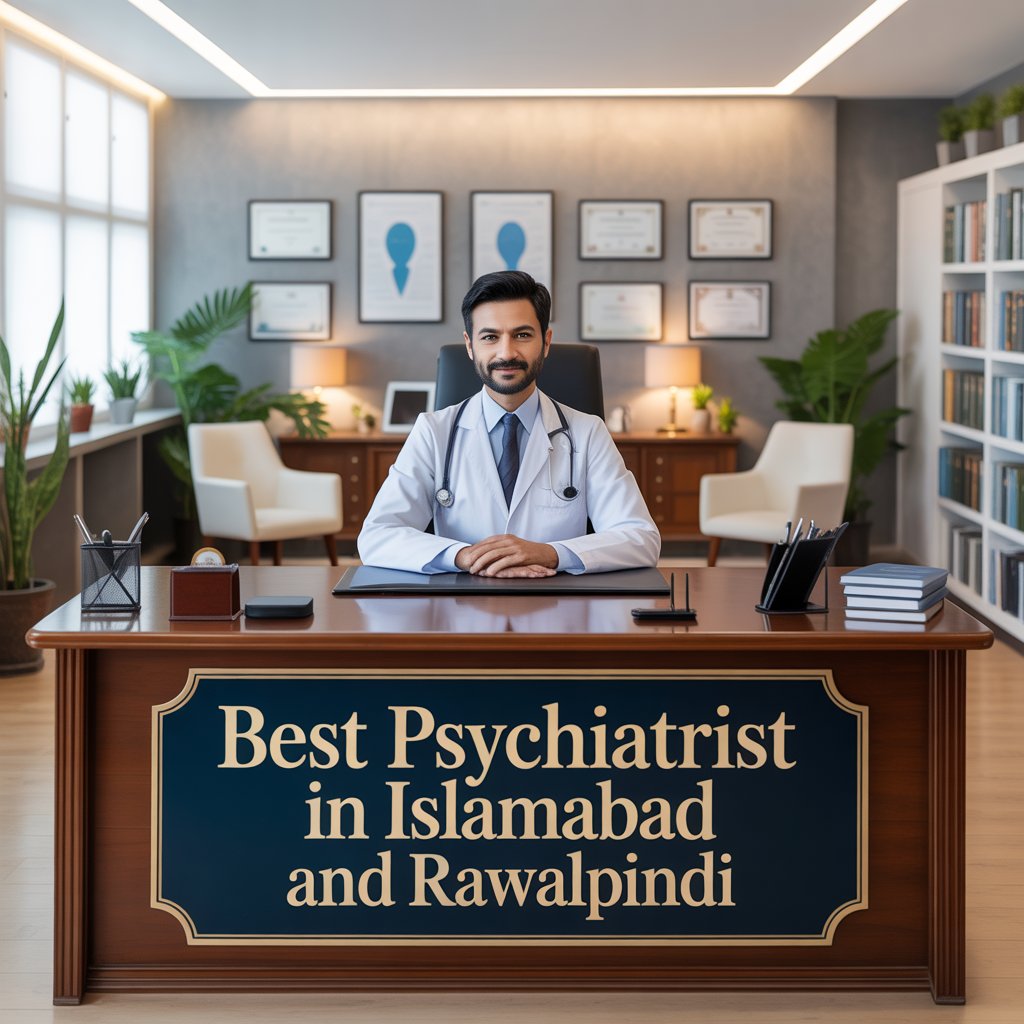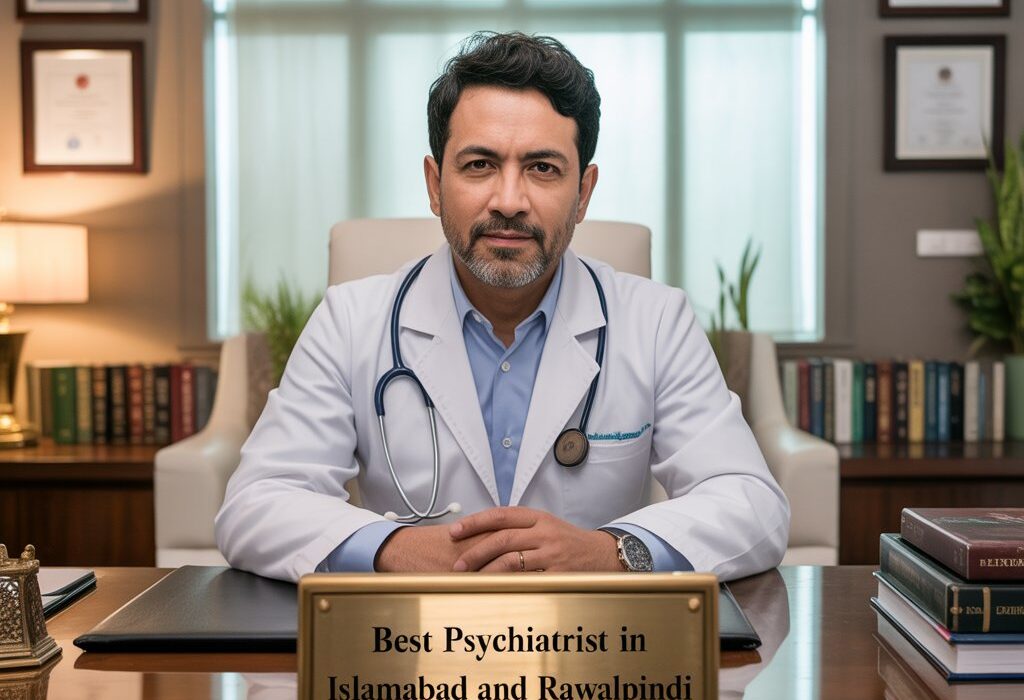Finding the Best Psychiatrist in Islamabad and Rawalpindi
Navigating the path to mental wellness is a courageous step, and finding the right guide is its most crucial part. For those in the twin cities, the search for the best psychiatrist in Islamabad and Rawalpindi can feel overwhelming. This journey is not just about qualifications; it is about finding a professional who provides trust, understanding, and effective care. This guide aims to simplify your search by highlighting the key qualities to look for and the steps you can take to find a mental health expert who truly aligns with your needs.
Understanding the Role of a Psychiatrist
First, it is helpful to clarify what a psychiatrist does. Unlike psychologists who primarily provide therapy, psychiatrists are medical doctors. They specialize in diagnosing mental health conditions, prescribing medication, and offering a range of treatments. Think of it this way: while a therapist helps you navigate the road through talk and strategies, a psychiatrist can also provide the medical “vehicle”—managing the biological aspects of mental health with medication when necessary. Many offer both services, creating a comprehensive treatment plan. Consequently, your choice will significantly impact your healing journey.
Key Qualities of a Top-Tier Psychiatrist
So, what separates a good psychiatrist from the best psychiatrist in Islamabad and Rawalpindi? Several factors contribute to an exceptional therapeutic relationship.
Empathy and Compassionate Communication
A great psychiatrist does more than just diagnose. They listen actively, seeking to understand your unique experiences without judgment. Their communication should make you feel heard and validated, creating a safe space where you can be open and honest. This human connection is the bedrock of effective treatment.
Extensive Experience and Specialization
Psychiatry is a broad field. Some professionals specialize in areas like depression, anxiety, trauma, OCD, or child and adolescent mental health. Therefore, looking for a psychiatrist with specific experience in dealing with your particular concerns can lead to more targeted and effective care. Do not hesitate to ask about their areas of expertise during an initial consultation.
A Collaborative Approach to Treatment
The best practitioners view the therapeutic relationship as a partnership. They do not simply dictate a prescription; instead, they explain your diagnosis, discuss various treatment options (including therapy and medication), and involve you in every decision. This collaborative approach empowers you and makes you an active participant in your own recovery.
Positive Reviews and a Strong Professional Reputation
In today’s digital age, patient reviews and professional reputations offer valuable insights. While they should not be the only deciding factor, consistently positive feedback about a doctor’s demeanor, effectiveness, and professionalism is a strong indicator of quality care. Look for patterns in reviews that resonate with what you are seeking.

Your Practical Guide to Starting the Search
Knowing what to look for is one thing; knowing where to start your search is another. Here is a practical step-by-step approach.
1. Seek Personal Recommendations
Begin by talking to people you trust. Ask your family doctor for a referral, as they often have a network of trusted specialists. Similarly, confiding in close friends or family members can sometimes lead to a personal recommendation, which carries significant weight.
2. Utilize Verified Online Directories
Several reputable online platforms list qualified mental health professionals in Pakistan. Websites like Healingdoorrehab.com allow you to filter your search by specialty, location, patient ratings, and fees. You can often read detailed profile and even book an appointment directly through these portals.
3. Verify Credentials and Affiliations
Once you have a shortlist, verify their credentials. Ensure they are a licensed Medical Doctor (MD) with a specialization in psychiatry (often an FCPS). Furthermore, check if they are affiliated with reputable hospitals or clinics in Islamabad or Rawalpindi, such as the Pakistan Institute of Medical Sciences (PIMS), Shifa International Hospital, or Ali Medical Centre. These affiliations often signify a certain standard of practice.
4. Schedule an Initial Consultation
Treat the first appointment as a two-way interview. It is your opportunity to assess whether you feel comfortable with the psychiatrist. Pay attention to how they make you feel. Are they respectful? Do they listen attentively? Do they explain things clearly? Your gut feeling about the connection is incredibly important.
Breaking the Stigma: A Community Effort
It is vital to acknowledge that seeking help for mental health is a sign of strength, not weakness. The cultural stigma surrounding mental health is gradually fading, thanks to increased awareness and open conversations. By proactively seeking the best care for yourself, you are not only investing in your own well-being but also contributing to a more understanding and supportive community in Islamabad and Rawalpindi. Remember, your mental health is just as important as your physical health, and deserving of the same level of care and attention.
Finding the right support can transform your life. By focusing on the qualities that matter most and following a structured search process, you can confidently find a professional who can guide you toward a healthier, more balanced future. The journey may require patience, but the reward—lasting peace of mind—is undoubtedly worth the effort.
Frequently Asked Questions (FAQs)
1. What is the difference between a psychiatrist and a psychologist?
Psychiatrists are medical doctors (MDs) who can diagnose mental health conditions, prescribe medication, and provide therapy. Psychologists typically hold a PhD or PsyD and focus on providing psychotherapy (talk therapy) but cannot prescribe medication.
2. How do I know if I need to see a psychiatrist?
Consider consulting a psychiatrist if you are experiencing persistent feelings of sadness, anxiety, or hopelessness; having thoughts of harming yourself or others; facing significant changes in sleep or appetite; or finding it difficult to function in daily life at work, school, or in relationships.
3. What should I expect during my first psychiatry appointment?
The first session is typically an assessment. The psychiatrist will ask you questions about your current concerns, personal history, family mental health history, and any symptoms you are experiencing. This helps them form an initial understanding and discuss potential treatment options with you.
4. Are consultations with a psychiatrist confidential?
Yes, absolutely. Like all medical professionals, psychiatrists are bound by strict rules of patient confidentiality. Your discussions are private and cannot be shared with anyone without your written consent, except in very specific, legally mandated situations where there is a risk of harm.
5. How long does treatment with a psychiatrist usually last?
The duration of treatment varies greatly depending on the individual and their specific condition. Some people may benefit from short-term treatment for a few months, while others with chronic conditions may engage in long-term management, similar to how one would for a physical health condition like diabetes or hypertension.




